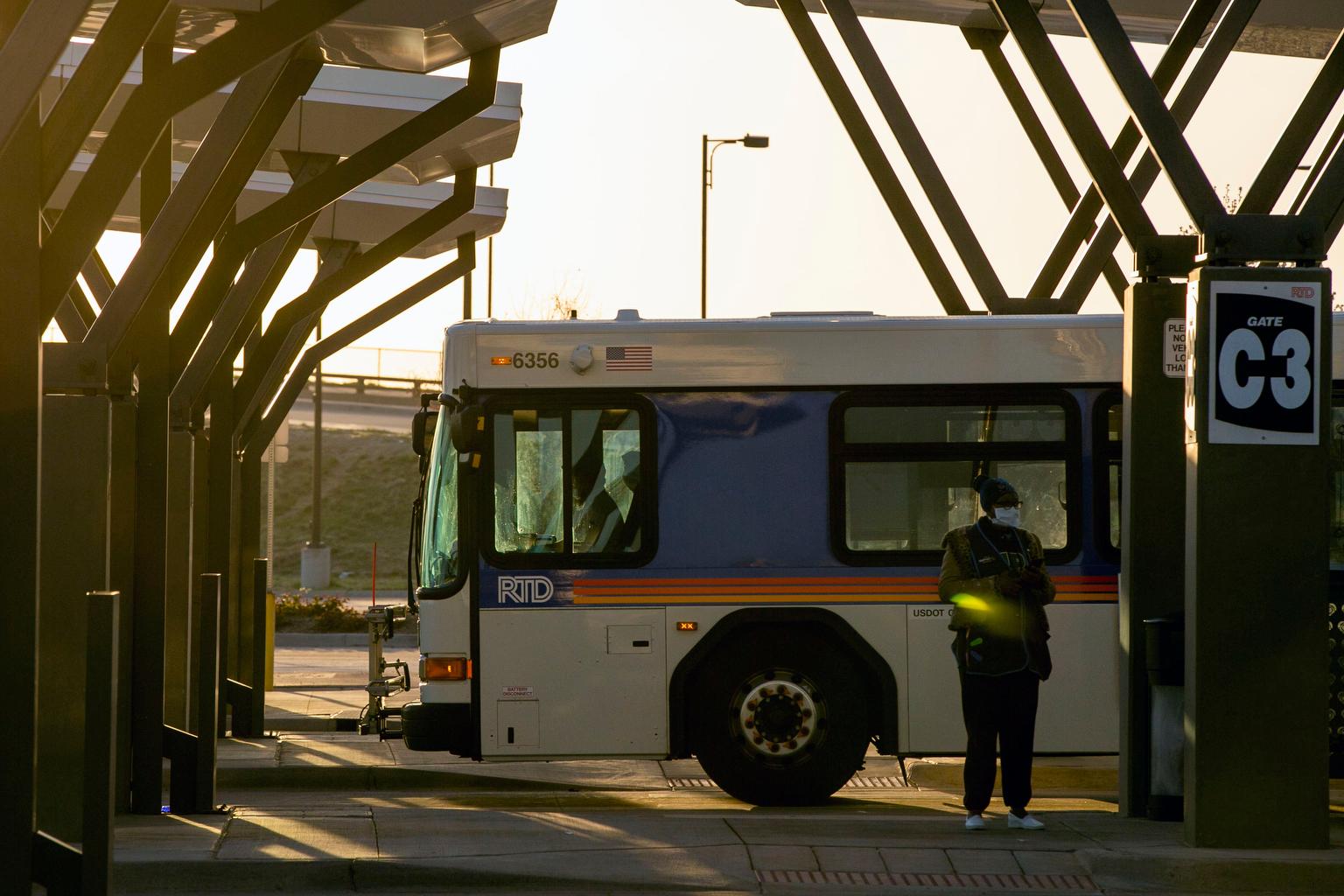
The Regional Transportation District board of directors on Tuesday gave initial approval to a 2021 budget that includes layoffs and other cuts.
Federal aid helped RTD avoid significant cuts this year. But with little hope for another pandemic relief package any time soon, transit agencies across the country are now making painful reductions. RTD’s $1.2 billion budget, which will get a final vote next week, is $140 million less than it had planned.
For RTD, that means more than 400 layoffs and eliminated positions, cuts to pay and other benefits, and a continued reduction in service. While the cuts reflect a tough reality, Chief Financial Officer Heather McKillop said improved sales tax revenue means they aren’t as severe as initially projected.
“Our numbers are so much better than they were,” McKillop told the board in October. “But the margin for error is extremely low in the next couple years.”
RTD is still operating just 60 percent of the service it offered before the pandemic. And though a service revamp is on deck for January 2021, it’s not clear when RTD will be able to make any significant restorations. McKillop said there isn’t enough money to sustain any increases past 2021 unless RTD draws down reserves.
“It’s really, really tight in 2022,” she said.
A strong rainy day fund could come in very handy. Sales taxes provide the bulk of RTD’s revenues and tend to vary with the economy. A coronavirus vaccine that could help the economy stay open and get people back on trains and buses would be a huge boon. But skyrocketing cases and hospitalizations could lead to another shutdown, which could be economically devastating.
In the meantime, RTD also used its stronger financial picture to minimize layoffs and avoid a fraught political issue: whether to keep saving for unfinished FasTracks projects, including the $1.5 billion extension of the B Line to Boulder County.
The budget will allow RTD to sock away $17 million next year, bringing that savings account balance to $137 million. RTD estimates it will have the cash to build the B Line sometime between 2042 and 2050, much to the chagrin of political leaders like Gov. Jared Polis. It’s one reason why Polis and legislative leaders formed an “accountability” committee to investigate RTD.
The question of what RTD should do with the B Line extension could soon get a new look. New General Manager and CEO Debra Johnson said at a press conference Monday she would evaluate the project “through a new lens.”
“I think, if anything, having a refresh to decide in earnest the best course of action to get there is what should be top of mind for all of us,” she said.
RTD will likely need some of those savings just to keep up with the maintenance and operations of the six train lines it did open between 2013 and 2020. Costly repairs will be needed starting in about six years, McKillop said.
“We have a systematic problem that we have to fix in FasTracks,” she said. “Because after 2026, it only gets worse.”
Voters approved the 0.4 percent sales tax increase in 2004 to fund the FasTracks expansion. But the Great Recession, unexpected cost increases and other factors required RTD to use non-traditional funding mechanisms like a public-private partnership and billions of dollars in debt to pay for the six lines that have opened so far. RTD expects to take in $262 million in FasTracks sales tax revenue in 2021 and pay out $177 million in debt service.
“Debt is strangling the budget,” board member Natalie Menten said Tuesday.
What to do in the long term will be someone else’s decision.
RTD’s leadership is in the midst of significant turnover. Johnson started her position as RTD’s top staffer on Monday. CFO McKillop and her top deputy are leaving their posts this November. And five new directors join the board in January.
The board will lose its two most fiscally conservative members; Natalie Menten is term-limited and will be replaced by former Golden Mayor Marjorie Sloan, and Ken Mihalik lost his re-election bid to political newcomer Julien Bouquet.
“There are a lot of issues that need to be corrected at the agency, but for me, as director-elect, I see our rider and operator safety as an immediate priority,” Bouquet said in an email.
Jeff Walker, Claudia Folska and Judy Lubow are all term-limited and will be replaced by Bobby Dishell, Paul Rosenthal and Erik Davidson, respectively. Incumbents Kate Williams and Doug Tisdale both have healthy leads in their races, but their challengers, as of late last week, had not yet conceded.
Tisdale, who has declared victory, said his second-term priority is to “build a path toward better communication, collaboration and cooperation.”
In her press conference Monday, Johnson said she would take her first 100 days to learn about the issues facing RTD from employees, local officials and riders. She called her new post a “great honor,” and expects her employees to be straight with her.
“Bad news doesn't get better with time. What I mean is, if there's a problem, raise the flag. I want to hear it,” she said.









